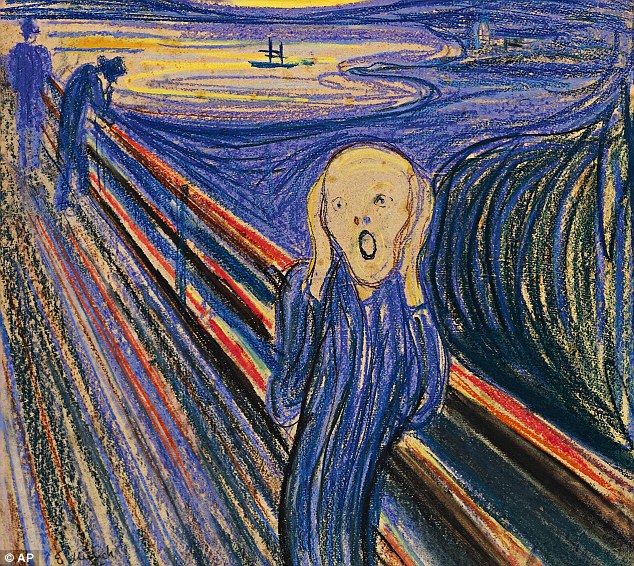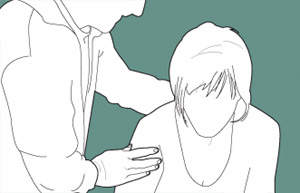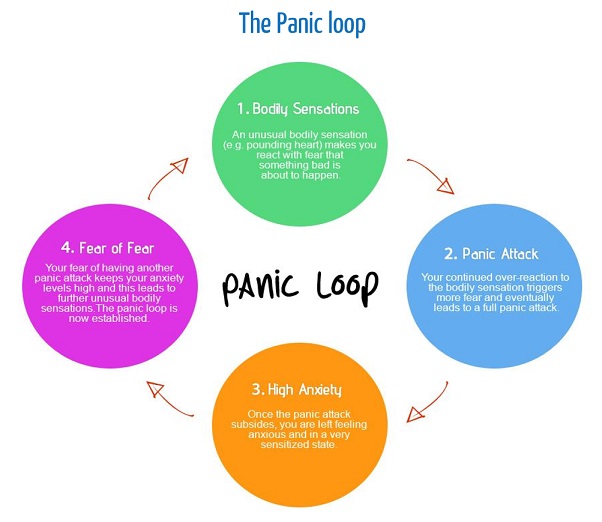[ Home ]
[ Terms And Conditions ]
[ Contact Us ]
[ Privacy Policy ]
[ About Us ]
October 2017
HOW TO CONTROL PANIC ATTACKS FAST
Let's start by establishing what it is that we are actually talking about when we refer to a panic attack.
Panic Attack Definition - It refers to the physical symptoms (which is probably why you're here) and sensations brought on by high anxiety. "Panicking" about some frightening thing that is occurring around you is simply being scared and is not the same thing. Individuals that have never experienced a real panic attack often make this mistake. Since you are reading this article (because you are suffering from the real thing) then you know what I'm talking about. Although a panic attack may be extremely scary to the individual that is having one, to control panic attacks, the person really needs to understand that the panic attack is not actually doing them any harm. Knowing this will help them start to control their panic attack symptoms. And this has to be the first step if there is going to be any possibility of successfully treating your condition. A panic attack will tend to appear to the person experiencing it to be a random event. And it will not be clear what triggered it. This is because the foundation of the panic attack was put in place many hours earlier before any of the symptoms were felt. What this means is that the actions of the person when the panic attack first started probably had very little to do with the current episode. This is quite often the case when the individual suffering the panic attack has the panic attack symptoms soon after going to bed. The sufferer of the attack may experience any of the common panic attack symptoms. They could include trouble swallowing, tingling sensation, sweating, trouble breathing, nausea, dizziness, heart palpitations, or a feeling of disconnected from reality. The last symptom is probably the most difficult to describe to someone that has never had a panic attack, and it is also (my opinion) the most frightening. It may cause the person to believe that they are dying and will commonly cause the individual to go to the Emergency Room. It must be understood that this is simply the sympathetic nervous system (SNS) (the fight or flight response to what the body believes is stress) followed by the parasympathetic nervous system trying to return the body to a normal state of equilibrium. But the worst part is what occurs next. The intense fear that the person having the panic attack is feeling, is actually becoming the catalyst that will make the panic attack become worse.
How long does a panic attack last? Some of my panic attacks would typically occur while reading the evening paper or watching TV. The typical panic attack would come in 15-20 minute waves (although they can last from seconds to hours), and the fear of it would actually be triggering the next wave. This is why the only real solution to this is to no longer have a fear of the next panic attack. Any panic attack treatment must address this fact in order to work. They emphasize this at the Panic Away web site and it is why I am such a huge believer in their highly successful technique.

Try Doing This Right Now, I Bet You Can't
Try to force a panic attack
Since most of your stress is going to be rooted in the fear of a future panic attack (regardless of what the original trigger was) here is something interesting that you might want to try. I have found that a simple technique to stopping a panic attack is by forcing yourself to actually want to have one. This is because by trying to "force" the panic attack you immediate diffuse (or even short circuit) the fear or anticipation of an attack. If you don't believe me, just try it. I mean right now. Think of any of the symptoms that you have experienced in the past. Now try to force your body to do it. You can't. Well. next time you start to to have a panic attack, try to make it worse. You can't, regardless how hard you try. What this tells you is that your body is actually in complete control of the situation.
Hyperventilation Syndrome
Here is something important to remember. The physical symptoms that you are experiencing are associated with increasing depth and speed of breathing. Now it is easy to see why this would be important to get more oxygen into the muscles to prepare the body to defend itself. The problem though is that you start to exhale too much carbon dioxide thereby leaving a disproportional amount of oxygen in your bloodstream. There are side effects to flooding your body with too much oxygen, mainly respiratory alkalosis and hypocapnia. These effects of hyperventilation may cause you to experience tightness in the chest, a smothering sensation, lightheadedness, dizziness or breathlessness. One of the more interesting group of sensations occurs because the blood supply to the brain is actually decreased (only by a tiny amount however). This is what causes the sensations like dizziness, confusion or that scary feeling of unreality. Most sufferers will experience, at some time, the fear of losing control of their breathing. They start to become afraid that they will pass out and their breathing will stop. Remember, a panic attack cannot cause your breathing to stop. As a matter of fact, you couldn't stop it if you wanted to.
What are the causes of panic attacks? - Is the problem all in my head?
This is the million dollar question that a lot of people are quietly asking themselves. Well, just consider that the natural purpose of the panic attack or fight-or-flight response sensation is to warn a person that trouble is close at hand. When this feeling "or warning", manifests itself, a person's brain will automatically scan its surroundings for any threats that may have to be dealt with. In this condition of "high alert" it isn't easy for the brain to stay focused on any single thing. This is because the brain is conditioned to find any and all possible dangers. And it will not quit until it has completed its mission, to keep you safe.
In some instances there may be underlying biological causes such as Postural Orthostatic Tachycardia Syndrome, mitral valve prolapse, Wilson's disease, labyrinthitis (malfunctioning of the inner ear), norepinephrine system (located in the locus ceruleus of the brain stem), or pheochromocytoma.
Pathophysiology - (how it happens)
When the panic attack begins, most individuals will choose "flight", and will begin to search for the fastest way to escape from this perceived "danger zone". This usually takes the form of simply leaving the store or bank and calmly going outside. If the individual feels that exiting the situation will result in feelings of embarrassment, this can easily cause the level of anxiety to get even worse. An example would be if you were at work or in a classroom setting. If you were to start experiencing the symptoms of a panic attack you may feel the need to just "deal with it" and continue on with whatever it was that you were doing. You can see how such a situation would make it almost impossible to concentrate on your job responsibilities. Many people that experience anxiety in these situations believe that tv screens, computer monitors, or other sources of artificial light may play a significant roll in causing the initial panic attack, or in making it worse. This seems especially true if the person is sleep deprived or under a great deal of stress.
However, in most instances the perceived threat or danger is not real and therefore the brain cannot find it. When this occurs the person's mind stops searching its surroundings and looks inward and starts to engage in self-talk (making itself believe the worst case scenario). It will start to imagine potential medical emergencies and cause the individual to start believing that they may be suffering from a potentially deadly condition, In other words, you feel that you are dying. Anything from a heart attack to a brain tumor. It sounds silly, I know, but if you've ever had a panic attack you know what I'm describing.
So then, why does this happen when there seems to be no real danger? The answer is that we seem to fear the symptoms. When you have these physical sensations it is common to panic, right? These sensations can initially form through many different ways. They may begin because of some underlying stress which increases the amount of adrenaline (epinephrine) in the body along with other stress related hormones, which may result in the physical sensations that the sufferer will believe is the root of their panic attacks. But here's where the problem is. You see, the higher levels of adrenaline in the human body can remain at a heightened level well after the actual stress event has ended. This will usually start the chain reaction of symptoms (described earlier), in particular, increased heart rate followed by hyperventilation (with all of its associated problems). The high levels of adrenaline also cause secondary problems: vasoconstriction (reducing blood flow to the brain) and blood sugar being drawn from the brain, resulting in lightheadedness and derealization.
Risk Factors : Things like smoking, alcohol, caffeine, and even sugar (if these things are taken in excess) can cause elevated stress levels and can be a significant cause of panic attacks especially if underlying emotional or psychological stress is present. So dietary changes may be in order. Panic attacks can less often occur due to number of disorders such as panic disorder, social anxiety disorders, post traumatic stress disorder, drug use, depression, and medical problems. A panic attack may also be caused by drug withdrawal as with antidepressant discontinuation syndrome. In some instances, complications such as an increased risk of suicide is possible. However to control panic attacks effectively, and quickly, you must defuse the current panic attack and remove the fear of future attacks.
Prognosis - This Treatment Will Control Panic Attacks
Remember, the main cause of panic attacks is the anticipation of a future attack. This anticipation can be either subconscious or conscious. I know that this sounds simple, but just think about it. The reason that you are reading this is to find something to save you from that next panic attack. As I mentioned before, any self-help therapy to control panic attacks has to deal with the fear of a panic attack, a cognitive restructuring, in order for it to be effective, because it is the only way to truly break the cycle of anxiety. This begins with an understanding that a panic attack will not harm you. I know that this is a lot easier said than done, but all of the terrible physical sensations that are felt during a panic attack are just perfectly normal physiological responses.
Self-help Therapy
Self-help programs can contribute greatly to panic attack treatment. I believe that the 21 7 Technique in the Panic Away program does this the quickest. Their site explains this in much more depth. The 21 7 Technique breaks this cycle forever, and it does it fast. Other types cognitive behavioral therapy (CBT) techniques such as counseling, hypnosis, NLP, regressing to the past, deep breathing exercises, or daily affirmation, have only limited success because they don't get to the root of the problem. However, the 21 7 Technique does get to the root of the problem and it cures it.
There is something else that I want you to remember. Your situation is not a hopeless one. And it will never become one unless you give up. Especially if you suffer from agoraphobia, you need to remember that there really is no such thing as a "safe zone". Since having a panic attack is not going to actually harm you, you are just as safe away from home as you are in it. Now your mind will try to trick you into believing otherwise, but you know I'm right. Try remembering your previous panic attacks and ask yourself, are you still alive? Were you sure that you were going die, but didn't? Did they manage to do any permanent harm to you at all. I think that you know what the answer to all of these questions is. So you can see that your situation is not hopeless. You WILL survive. Because of the large number of successes and all the people that have found panic attack help, I am really hoping that you Click Here to check out the Panic Away web site and to download the Rapid Relief Audio. It's time to make a decision. I wish you all the best.
(P.S. Additional Panic Attack Updates For Fall 2017 Below)
References -
https://medlineplus.gov/anxiety.html
https://www.nimh.nih.gov/health/topics/anxiety-disorders/index.shtml
https://www.med.upenn.edu/ctsa/panic_symptoms.html
Panic Attack Medications
Although this is primarily a psychology article (rather than medical) focusing on the successes of behavioral therapies it should be mentioned that medication is also used with some degree of success. Selective serotonin reuptake inhibitors have been used with good results. Anxiolytic is a medical term that has become almost synonymous with the benzodiazepines. For anxiety related to stress, these have been the preferred drug treatments for decades.
Read about the author of How To Stop A Panic Attack Fast, on Plus.Google.com .
Disclaimer: The materials presented on this website are not intended to treat, diagnose, cure or prevent any illness. The treatments discussed on this site come from a large number of resources making them difficult to verify. Therefore this natural panic attack cure website is meant to be used exclusively for educational purposes. You should consult with your physician first, since some panic attack symptoms like chest pain and shortness of breath are also hallmark symptoms of cardiovascular illnesses such as myocardial infarction and unstable angina. To attribute these pains to simple anxiety and not (also) to a possible physical condition would be a diagnosis of exclusion. In some instances an electrocardiogram and a mental health assessment may be advised.
Any product being purchased from a link on this website may result in an affiliate commission being earned by the author. This is how we are able to operate and maintain this website.
About Us
This website is an educational site that addresses the subject of How To Stop A Panic Attack. On the main page of this site you will find information on what panic attacks are, a description of panic attack symptoms, and a brief discussion on some of the lesser known (but highly effective) home based ways to control panic attacks along with some helpful techniques to stop their recurrence.
Also included are updates related to the topic of how to control panic attacks as an informational resource to help the reader. On these related topic sections I cover the following in more depth: A review of the best methods to treat panic attacks at home, tips on treating panic attack disorder naturally, and breathing (with other preventative measures and tips). I firmly believe that coping techniques (while somewhat helpful in dealing with panic attack) are not the true answer. Hopefully this site will help the reader to get at the root of the disorder and allow themselves to control panic attacks and be free from anxiety forever.
Since I am a believer in natural cures and remedies, all of these topics on panic attacks are viewed from the perspective of natural healing methods. Natural cures have proven themselves over time to be less expensive and more effective in dealing with panic attacks (with fewer dangerous side effects).
Hopefully, you have found the educational materials presented in this article to be of some help in your quest for natural healing information to control panic attacks. So feel free to come back often as this site is updated regularly.
Thanks for stopping by.
Copyright © http://panic-cure.tripod.com 2017




